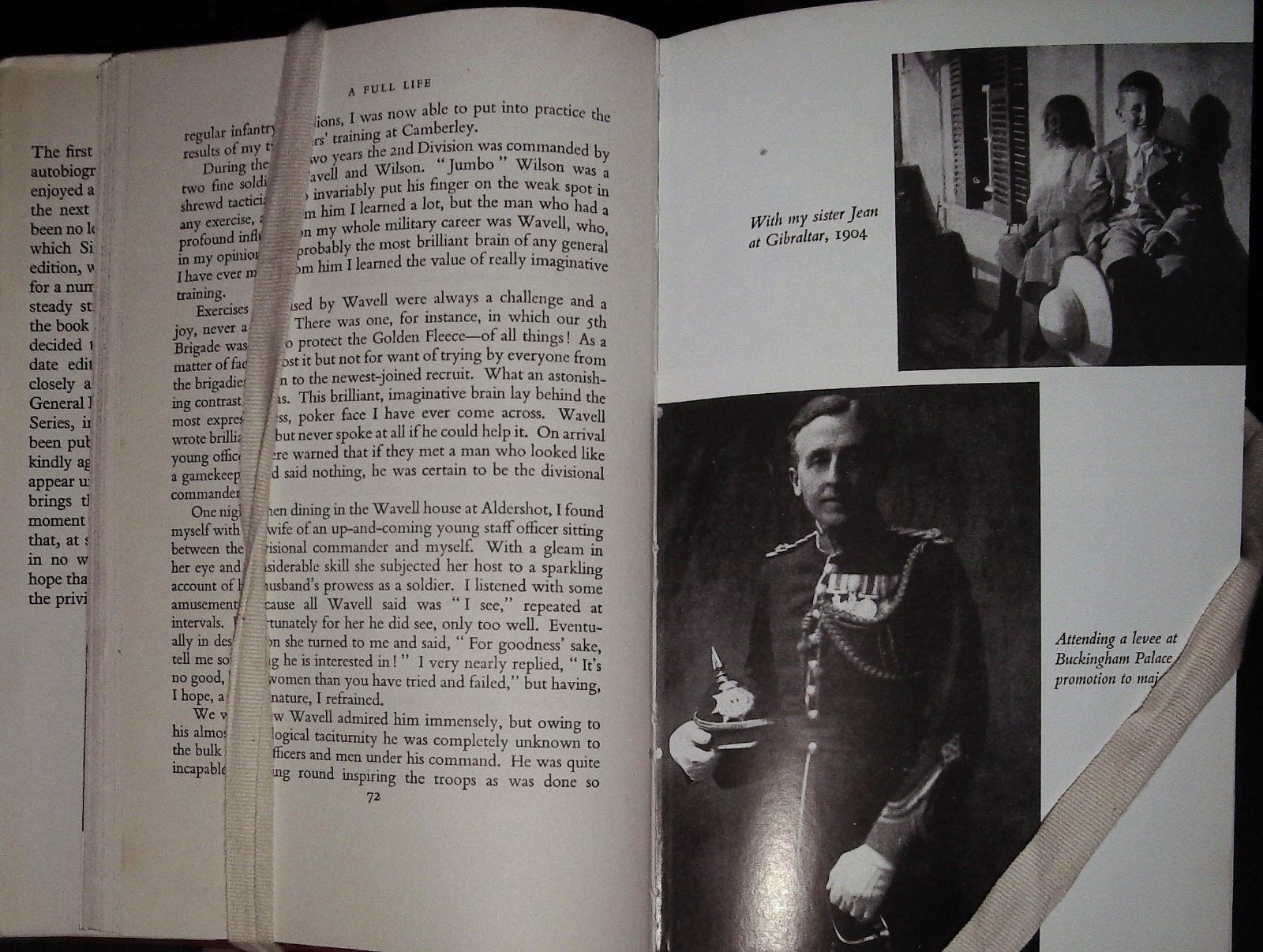|
From the Archives: Brian Horrocks
Sunday, 29 June 2025
|
|
From the Archives (Brian Horrocks) The 'Farewell to Bow' event is scheduled for later this month, where we will be bidding a fond- if bittersweet- farewell to the 140 year old institution. It seems a good time, therefore, to revisit one of Bow School's bravest sons, Lieutenant-General Sir Brian Horrocks, KCE, KBE, DSO, MC (1895-1985). Horrocks led a wide-ranging and fascinating career, being Corps Commander under General Montgomery (1942-1945), Commander in Chief of the British Army of the Rhine (1948-1949), Gentleman Usher of the Black Rod in the House of Lords (1949-1963) and, perhaps most significantly for our purposes here, Section Commander of the Bow School Cadet Corps in 1909. Little is mentioned of Bow School in Brian Horrocks' 1960 autobiography, Escape to Action, nor yet in its 1974 revised edition, A Full Life. We learn, however, that he "had an extremely happy childhood". His father was a member of the Royal Army Medical Corps frequently posted abroad, and so much of his early life was spent between his home in Durham and time with his father in India and Gibraltar. "I used to travel out by P & O every holidays from my preparatory school in Durham and the Gibraltar of those days was a small boy's paradise… Life consisted of bathing, hunting with the Calpe hounds, cricket matches, race meetings and children's parties—all great fun." A 1904 photo of Brian Horrocks with his sister Jean in Gibraltar is included in the autobiography, given a glimpse of him at the age he would have attended Bow. He would later revisit Bow in 1948, 1965 and 1974; in a 1961 letter to Charles Adamson he recalled the occasion when he was sent to bed by George Shafto Legard by making '0' in an inter-school cricket match. He also had a habit of sneaking into the kitchens; member of staff Mrs Sarah Crawford would later recall having to chase him out. His status as Section Commander of the Bow School Cadet Corps at the age of 9 would have been his first taste of military service. At that age, he would have been drilled with dummy wooden rifles, but target practice with powerful air rifles in one corner of the dining room would have been compulsory. In June 1961 Horrocks sent a letter of apology to Bow, stating that he would not be able to attend the Speech Day: "I have always wanted to be present again at Speech Day at Bow School but unfortunately July is a very busy month in the House of Lords and on July 10 this year I shall as usual be on duty there. Nevertheless I shall be thinking of you all at Bow and remembering the days when I learned to play games—particularly Rugger and cricket—at Bow. I doubt whether any school of similar size has ever produced so many first class athletes. I was never one of them but I did at least learn at Bow how to enjoy sport of all kinds and this has stood me in good stead throughout my life. May I wish you every possible success in 1962 and victory in all your school matches." During the 1974 Speech Day, Charlie Adamson recalled the experience of Class Va in meeting Sir Brian Horrocks when he visited on the 14th March: "Va, whom I was teaching at the time that Sir Brian visited us, probably felt momentarily somewhat tongue-tied and nervous, but theirs was a great experience, in reality, and in any case, Sir Brian soon put everyone at ease when, on learning that the 'A' XV were playing that very day, he hoped that they would have very good luck and would win." Unfortunately, there is too little space to examine his career after Bow with the depth it deserves. After earning the Military Cross for his resistance and attempted escapes in a German Prisoner of War camp during the First World War, he was part of the battalions send to intervene in the Russian Civil War in 1919. He competed in the pentathlon during the 1924 Paris Olympics, and, during the Second World War, fought against Rommel in North Africa, under the command of General Montgomery. His involvement in 'Operation Market Garden' in 1944, wherein airborne forces attempted to seize nine bridges on the Lower Rhine River, was immortalised in Cornelius Ryan's A Bridge Too Far (1974), pictured above. In the 1977 film adaptation of the same name- for which Horrocks acted as military advisor- he was played by Edward Fox. In achieving "A Full Life" (to quote the title of his autobiography), Horrocks represents one of Bow School's finest alumni, and he reminds a stand-out figure in the history of the school.   |
